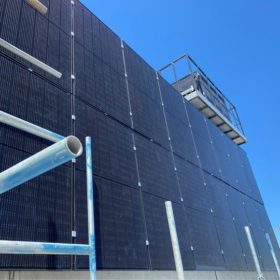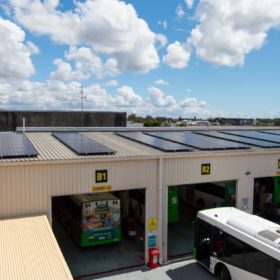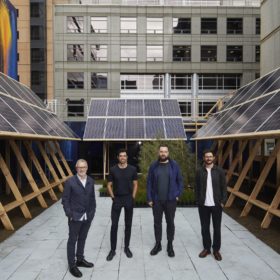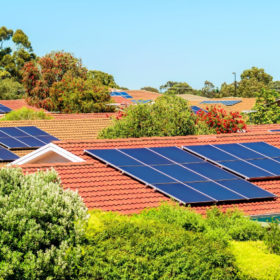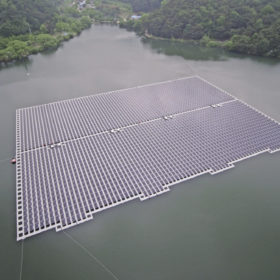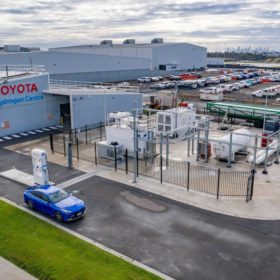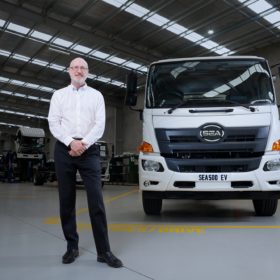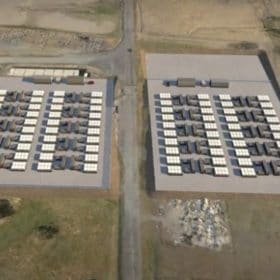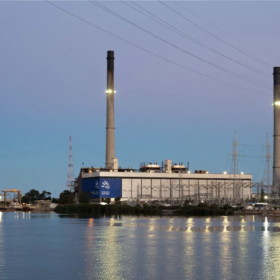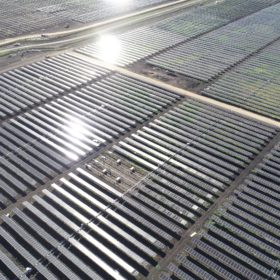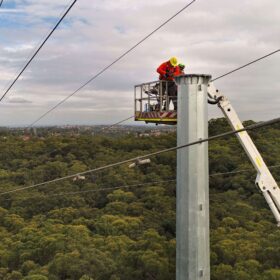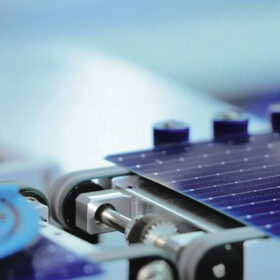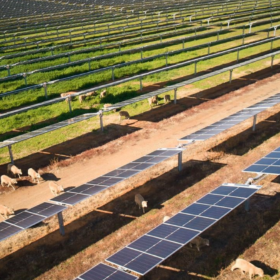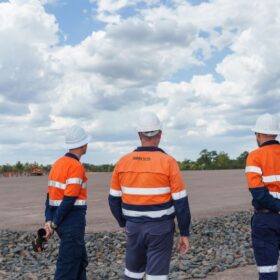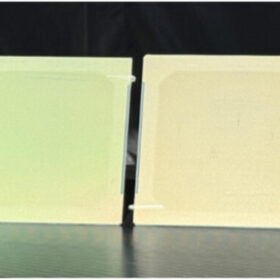Melbourne developer unveils Australia’s ‘largest’ vertical solar PV system
Victorian-based property developer Beulah has announced its soon-to-be-completed Paragon tower in the heart of Melbourne will be home to the nation’s largest and most efficient vertical solar PV system.
Solar PV powered ‘megawall’ to charge electric bus fleet
Public transport operator Transdev will use a ‘green mobility megawall’ comprising 250 solar modules and 10 Tesla Powerwall units to charge two new electric buses which are set to be rolled out onto the streets of Brisbane.
Solar steals the show at Melbourne Design Week
An independent exhibition brought to Melbourne Design Week by a group of 15 of the city’s top architectural firms demonstrates the blueprint for Melbourne’s transformation to “A New Normal”. “A New Normal” is a plan to transform Greater Melbourne into a self-sufficient city by 2030.
Now they want to charge households for exporting solar electricity to the grid — it’ll send the system backwards
It’s come to this. The Australian Energy Markets Commission has produced a draft decision that will make households and small business with solar panels pay to inject their surplus production into the grid.
AGL to leverage floating solar at Loy Yang for hydrogen project
At AGL Energy’s Investor Day the energy giant revealed plans for a potential floating solar project on the site of its Loy Yang power station in Victoria. AGL, which is currently in the application process for a 200 MW battery at the site and is already producing brown hydrogen for export to Japan, is looking to leverage unused space to reduce emissions.
Toyota, hot off Canberra’s heals, opens Melbourne’s first hydrogen refuelling station and showcase centre
Just days after Australia’s first ever hydrogen vehicle refuelling station opened in Canberra, Toyota’s former manufacturing site in West Melbourne became home to the second ‘future fuel’ station.
Australia’s first locally assembled electric truck fleet launched by Melbourne company
Melbourne-based company SEA Electric has launched Australia’s first locally-assembled electric truck range, offering a range of emissions-free transport configurations.
AGL pushes ahead with plans for 200 MW big battery
Energy provider AGL is forging ahead with plans to establish a 200 MW grid-scale battery at its Loy Yang power station in Victoria’s Latrobe Valley, announcing it has lodged a planning application with the state government.
Down 55% – but not out
Over 2,000 MW – or around 55% – of South Australia’s firm supply capacity was unavailable on March 12, 2021, along with virtually all of its large-scale renewable supply (a further 1,800 MW or so) but the lights stayed on – just.
Risen gets Green light for 80 MW string of solar PV projects
With ambitious plans to establish a 2 GW renewable energy portfolio in Australia, solar PV module supplier and project developer Risen Energy has signed a deal with Green Gold Energy (GGE) to jointly develop and construct a string of solar projects totalling 80 MW.
